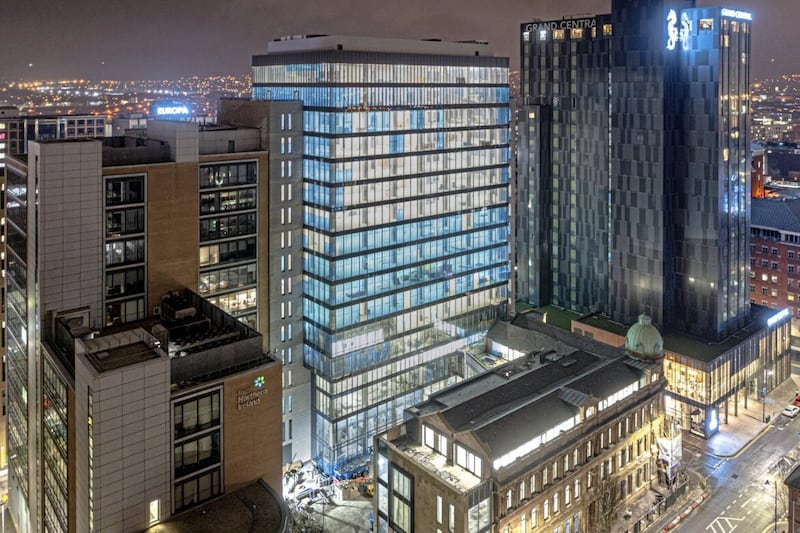THE backdrop to the Northern Ireland property market in 2021 was dominated by pandemic and Brexit related factors, many of which will continue to impact the market into 2022.
Yet in spite of this background, and given the limited window post lockdown, the commercial property market remained active across many sectors, with logistics / industrial being the star performer.
Investment market activity should reach £250 million by the year end, 25 per cent ahead of the five-year average (£200m a year) and more than double the level of activity in 2020 (£120m).
The most significant transaction of the year came in the first quarter with the sale of Oakland Holdings office and retail development at Merchant Square in Belfast.
At £87m, this is the largest office investment deal on record and reflects a net initial yield of 5.2 per cent, one of the strongest yields ever achieved for an office building in Belfast.
Interestingly, the majority of investment activity was in the retail sector, with retail parks attracting most interest, a trend that is likely to continue into 2022.
In quarter one, Supermarket Income REIT purchased Balloo Retail Park in Bangor for £24.8m and despite the significant vacancy levels, Fairhill Shopping Centre transacted, and Connswater Shopping Centre and Retail Park is due to complete by the year end.
The office occupational market remains affected by the pandemic and people working from home. Many office occupiers continue to be unclear as to their future space requirements as hybrid working and the office function evolves.
As a result, final market take-up for 2021 is likely to be 200,000 sq ft, which is 60 per cent more than 2020 but less than half the five-year average. We expect the continued effects of Covid and its variants to continue to subdue demand in 2022.
The winners and losers in retail in 2021 depended on if they fit into the essential or non-essential category.
The majority of essential retailers, including those in the grocery, convenience and discount sectors, were able to fully operate throughout the pandemic, and in most cases have traded exceptionally well. It is useful to note that retail activity generally is now 4.2 per cent above its pre-pandemic level, which bodes well for all forms of retail heading into 2022.
Rents have held-up well in the majority of retail parks where vacancy levels have remained low due to their more attractive shopping environment during the pandemic. But in shopping centres and on high streets, there is continued pressure on rental values with the majority of retailers taking short-term leases and requiring significant incentives to renew leases.
New leasing activity in 2021 was dominated by essential retailers. For example, discount supermarket Lidl opened or relocated numerous stores with others planned for 2022. Convenience retailers remain active in seeking space with notable acquisitions occurring from both Hendersons and Musgrave.
The drive-thru sector has also seen a surge in demand with Tim Hortons, McDonald’s, Greggs and Costa Coffee particularly active.
In line with the rest of the UK, demand for logistics space and occupier activity is strong, driven by the rise in home delivery.
The fallout from Brexit has also put upward pressure on rents. Older premises can now command rents of up to £5 per square foot, and where new builds are proposed with floor to ceiling heights of 33 ft (10m)-plus, landlords are asking £7 to £8 psf.
We expect continued and sustained demand in this sector throughout 2022 with rising rents and pre-lets a feature of the market.
Declan Flynn is managing director of Lisney (www.lisney.com)









